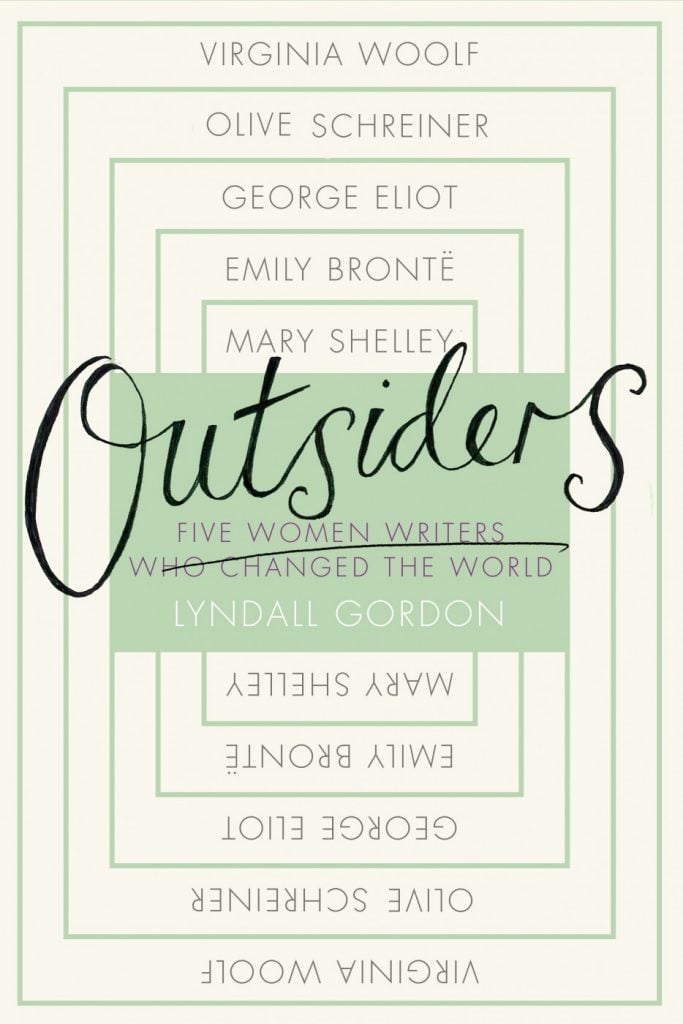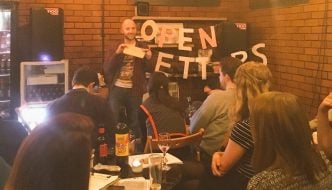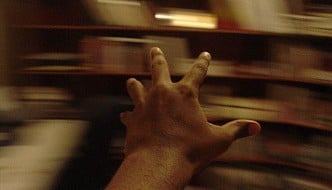
We were scuttled into the third floor of the Portico Library at 57 Mosely Street. The grandeur of the library bellowed over its audience; and here we sat, waiting to hear the tales to be told by Lyndall Gordon.
Gordon is well known for her biographies of T.S. Eliot, Virginia Woolf, Charlotte Bronte, Emily Dickinson, and many more. Her new book, Outsiders: Five Women Writers Who Changed the World, celebrates the works of five female writers throughout history. Five women who each know what it’s like to be left on the cusp of society; to be shunned for their art, to be rejected from the world they each lived in, and, therefore, who’s only solace were books. In exploring the history of these women, Gordon reveals added layers of interpretation to their novels. It is in her newest book where this history is exposed.
Gordon is a different sort of biographer: she doesn’t just offer a factual report on people’s history. In Outsiders, Gordon doesn’t leave these women to be artefacts to be studied. She digs deeper and looks at the internal life of her subjects. She explores their struggles, prospects, and artwork.
The theme of this biography, and indeed the stimulus for it’s title, is estrangement and loneliness. Each of these women have been categorised as outlaws; Outsiders, victims of and vulnerable to public opinion. Gordon describes each woman from her biography as a ‘rare breed’: a new genius of womanhood across generations. Mary Shelly was one marked as an oddity and a social outcast. For Shelly, her novels therefore became her companions: her place of confinement and source for moral understanding. She suffered greatly from depression, like her mother, and her journal became her soul confident. Mary Anne Evans too suffered extreme consequences in being labelled ‘outsider’. She was a part of the era of the fallen women: one whose only way to redeem herself is to die. Evans fulfilled this in becoming George Eliot; a pen name which took her through her writing career. Within her career, George Eliot explicitly referred to herself as a ‘freak of nature’.
Yet, for some of these women this status was made more complex. Some were, despite their passion, actually classed as insiders; thus, causing a constant friction with their ‘outsider tenancies’. Woolf was classed an insider in the sense of brought up in the public sphere. The private space, her home, therefore, became a sort of safe space where she could writer. The public sphere became just somewhere she would perform. She was accepted into this social public sphere but only due to its lack of awareness of her other life, her one concerned so highly with fiction. Her trajectory was similar to Emily Dickinson, one who Gordon does not include in this bibliography, and the Brontë sisters. For the sisters, home was a too regarded a safe place. They were said to be ‘walking around breathing their thought and feelings’. It makes understanding their world a lot harder, as one can never really know the world within: a challenge which Gordon accepts and works to uncover.
The true nature of women is unseen. The test is still ongoing. Gordon’s biography is just one extraction of females, new and innovative, that adds to femininity’s rich tapestry.
For more events at the Manchester Literature Festival, see their 2017 events schedule, found at: http://www.manchesterliteraturefestival.co.uk/
Filed under: Written & Spoken Word
Tagged with: Bibliographer, Bibliography, Emily Bronte, Emily Dickenson, female writer, George Eliot, Lyndall Gordon, Manchester Literature Festival, Mary Shelley, MLF17, Virginia Woolf, Women Writers



Comments